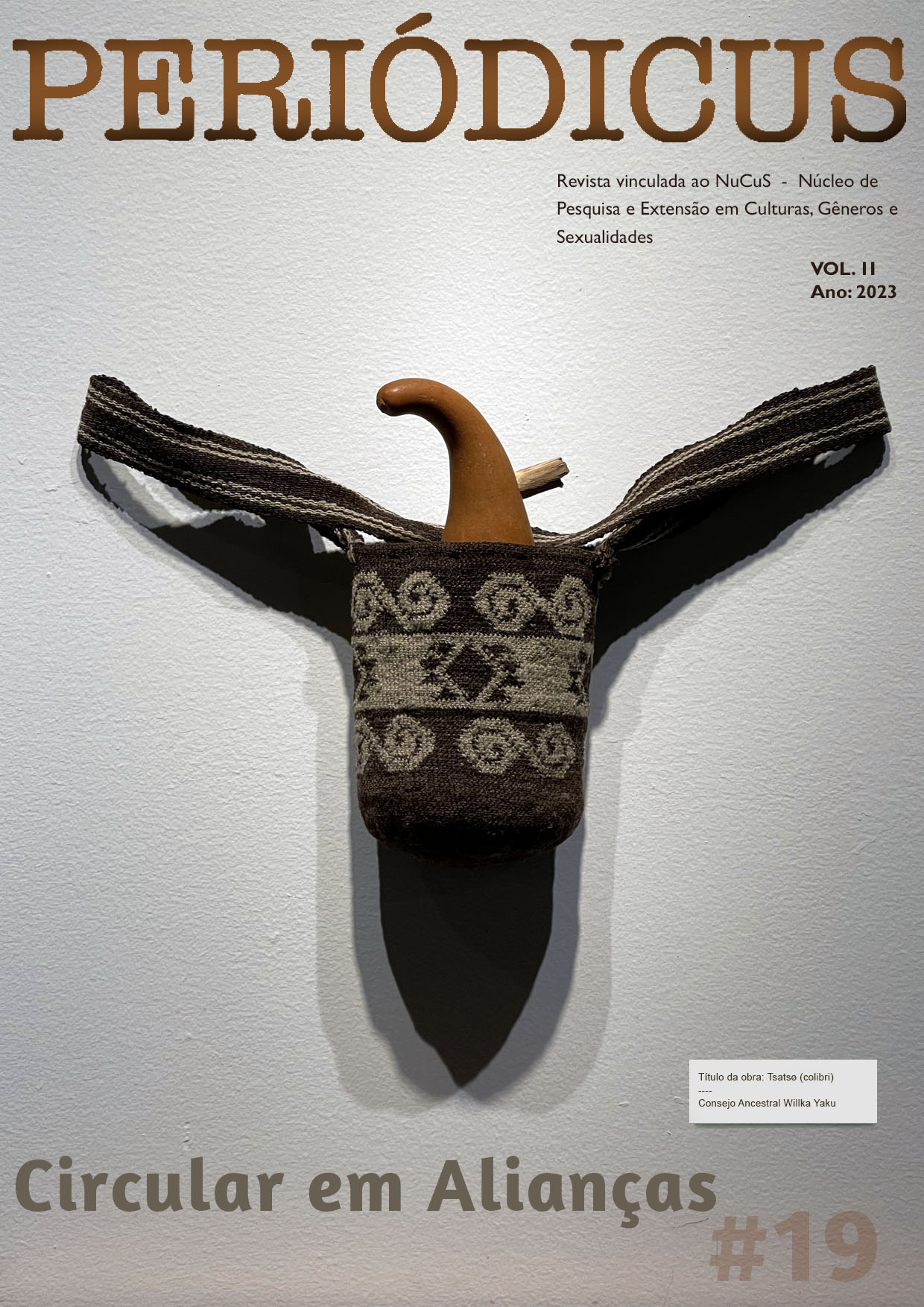Critic to the sexnormative readings of “Sargento Garcia”, by Caio Fernando Abreu
DOI:
https://doi.org/10.9771/peri.v2i19.55729Abstract
This study aims to criticize the most current interpretations of “Sargento Garcia”, short story from Morangos mofados, by Caio Fernando Abreu. Supported by the researches of Arenas (1992), Camargo (2010), Ginzburg (2012), among others, it’s pointed that several studies have a sexnormative perspective focused on the (homo)sexual features of the writing of Caio Fernando Abreu, which eclipses other reading possibilities. The concept of sexnormativity comes from debates of the asexual community and it’s used according to the definition of Oliveira (2015). With the (re)reading of the story and the resumption of the allegoric critique to the dictatorship, the analysis indicates the incoherences of works that disregard the violence that permeates the narrative in favor of a homoerotic relation between the characters. With the study of Peter Fry (1982) about the male sexuality, it is argued that in the story there’s a critic to the hierarchical system that divides “men” and “bichas”.
Downloads
Downloads
Published
How to Cite
Issue
Section
License
Copyright (c) 2023 Luiz Gustavo Osório Xavier

This work is licensed under a Creative Commons Attribution-NonCommercial 4.0 International License.
Authors who publish in this journal agree to the following terms:
Authors retain copyright and grant the journal the right of first publication, with the work simultaneously licensed under a Creative Commons Attribution Noncommercial License that allows the work to be shared with acknowledgment of authorship and initial publication in this journal, but prohibits commercial use.
Authors are authorized to enter into separate additional contracts for non-exclusive distribution of the version of the work published in this journal (e.g., publishing in an institutional repository or as a book chapter), with acknowledgment of authorship and initial publication in this journal.
Authors are permitted and encouraged to publish and distribute their work online (e.g., in institutional repositories or on their personal website) at any point before or during the editorial process, as this can generate productive changes and increase the impact and citation of the published work (see The Effect of Open Access).








